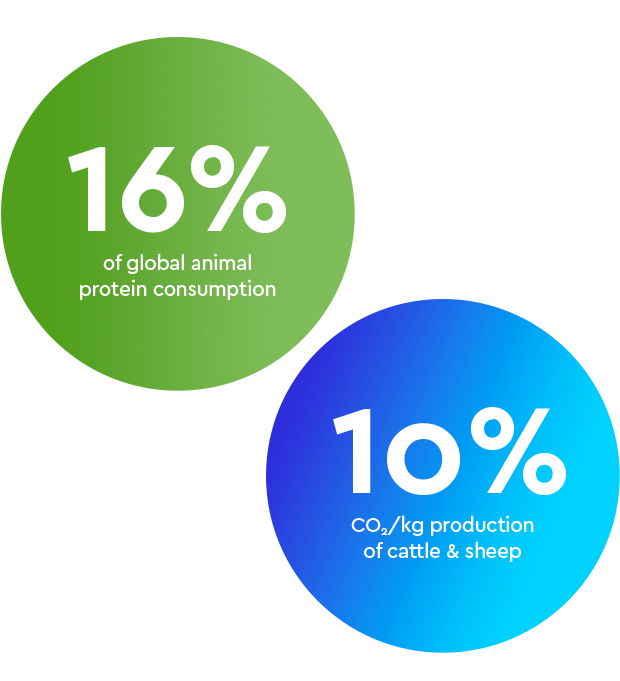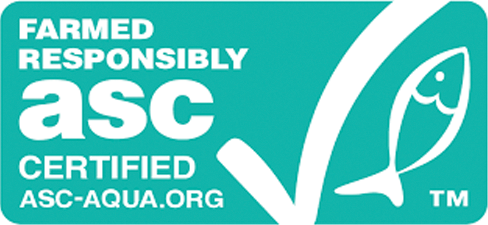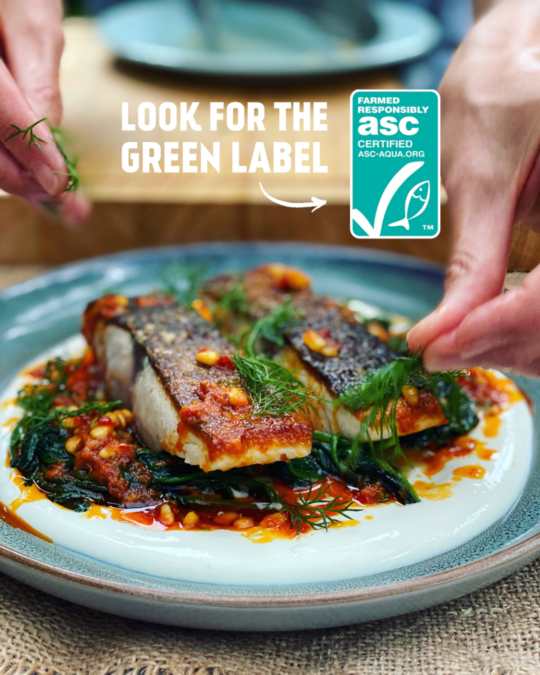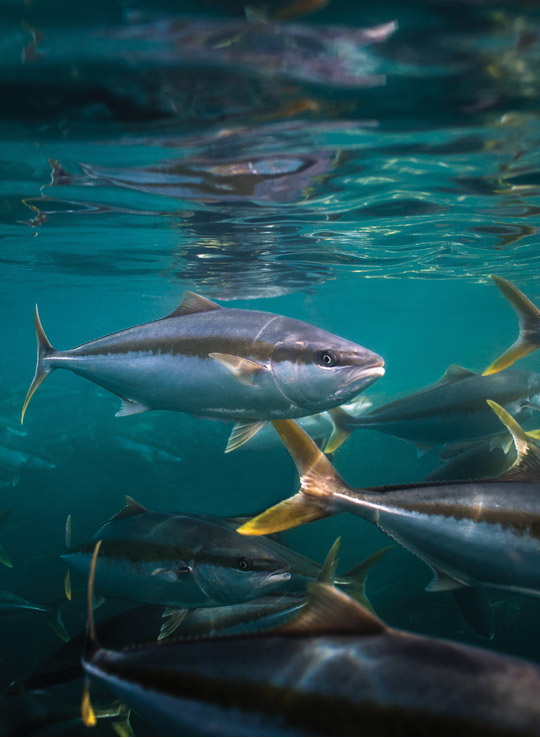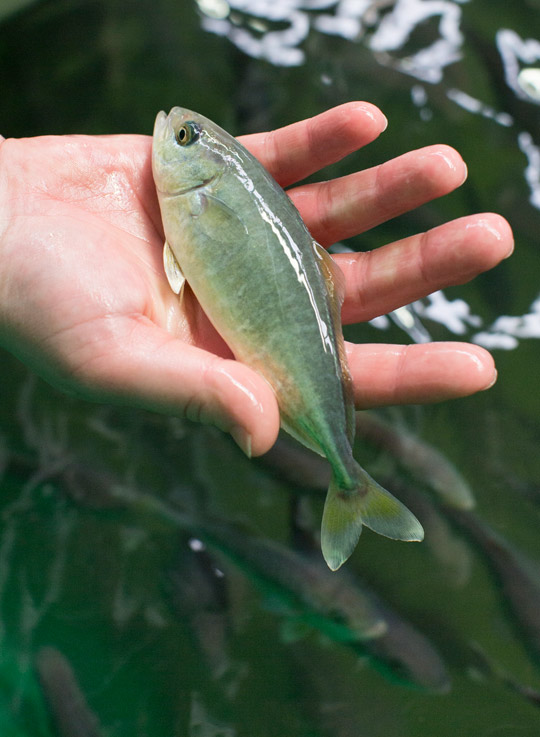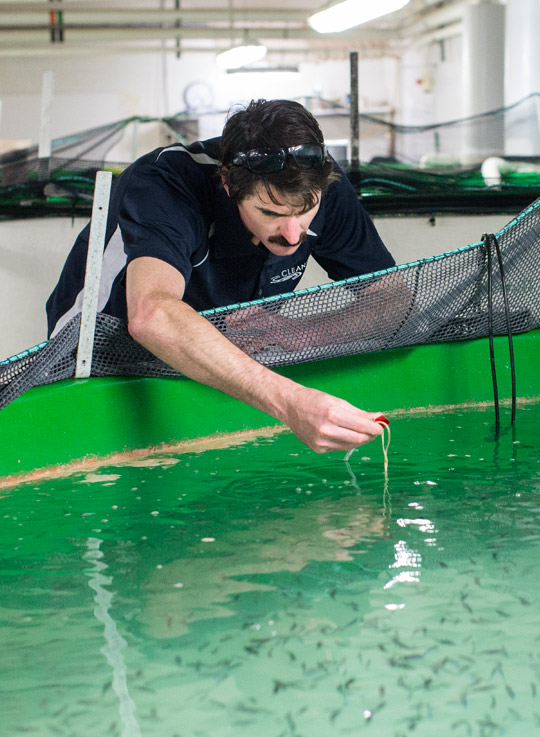Sustainable
growth
Aquaculture is a sustainable growth opportunity. The OECD and FAO forecast fish consumption to continue rising steadily through 2025. Fish is an increasingly important source of animal protein, having grown rapidly to around 16% of all global animal protein consumption.
The wild fish catch is effectively capped, leaving growth in sustainable aquaculture as the only way to meet rising global demand. Farmed finfish convert feed into body mass 7x more efficiently than cattle and sheep, while producing less than 1/10 the Co2 per kg of cattle and sheep.
Clean Seas’ Spencer Gulf Kingfish sells at a premium to wild caught Kingfish thanks to its superior culinary qualities.
